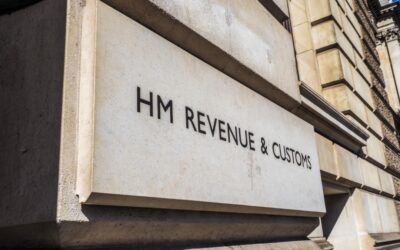Making Tax Digital for income tax is being introduced on 6 April 2024. It will affect self-employed individuals and landlords with annual business or property income above £10,000. For general partnerships, the start date has been set at 6 April 2025. LLPs will join MTD later, but the date is not yet confirmed.
MTD for income tax requires individuals to keep accounting records in digital format and to submit tax returns using MTD-compliant software. MTD for income tax will require individuals to submit quarterly updates of their income and expenditure to HMRC, along with keeping digital records. A year-end declaration will also be required to be submitted following the end of the year using MTD-compliant software.
If you fall within the MTD for income tax rules you need to be aware of your ‘digital start date’ as this will determine when you are required to start following the MTD rules. Your digital start date for Making Tax Digital is dependent on when your business commenced.
The business commenced before 6 April 2023
If your business commenced before 6 April 2023 then your digital start date will be 6 April 2024.
The business commenced after 6 April 2023
If your business commences after 6 April 2023 then your digital start date will generally be the 6th April of Year 3 of trading unless the notice to file a tax return for Year 1 is given after 31 October in Year 2 in which case your digital start date will be 6th April of Year 4.
Changes to basis periods
For many years businesses have been taxed on the current-year basis such that for a given tax year you are taxed on the profits of the accounting period ending in that tax year.
However, in order to make the quarterly return process easier the government is changing the rules such that all businesses will be taxed on a fiscal year basis from 6 April 2024. It should be noted that the basis period reform will impact on general partnerships and LLP’s even though they are not being bought into MTD until a later date.
This means that businesses will then be taxed on a fiscal year basis to either the 31st March/5th April. If your accounting period is already 31st March or 5th April then the transition to MTD is pretty straightforward.
However, if your current accounting period does not end on 31st March or 5th April then the situation gets slightly more complex and there are some special rules which apply for the 2023/24 tax year (‘the transitional year).
Where this is the case you have two options. The first is that you will have to align your accounting period with the tax year. Your second option is to carry out apportionments of two sets of accounts for the transitional year and each year thereafter.
For example, a business that prepares accounts to 31 December each year will be impacted as follows in the transitional year:
- Instead of preparing accounts for the year to 31 December 2023 it could prepare accounts for the long period 1 January 2023 to 5 April 2024 and then to 5 April each year thereafter. This means an additional 96 days of profit would be taxed in 2023/24 (‘the transitional profits’). However, brought forward overlap profits that arose in the opening years of trade can be relieved against the transitional profits. In addition, the rules also enable transitional profits after the deduction of overlap profits to be spread over 5 years but the trader can elect to be taxed on them sooner. Any untaxed transition profits are taxed automatically on cessation of the trade.
- Alternatively, the business could keep 31 December for the purposes of preparing accounts and apportion figures from two sets of accounts to arrive at the assessable profits for each year However, this would still require an additional 96 days of profit to be recognised in the 2023/24 transitional year. Therefore, for the 2023/24 tax year total assessable profits would be based on the whole of the profits for the year ended 31 December 2023 together with 96/366ths of the profits for the year ended 31 December 2024. As above, overlap profits can be deducted and then any transitional profits remaining can be spread over 5 years.
How can we help?
If you are feeling overwhelmed by the upcoming changes our expert tax advisors can assist your transition to Making Tax Digital to ensure a smooth stress-free transition. If you would like to get in touch please fill in the contact form below to book your free initial meeting.
Complete our form for a Free Initial Meeting
Related content
Tax Rates and Allowances 2023/24
Introduction We have summarised the key rates and allowances which are fundamental to our business and personal lives. We are sure that you will find them a useful point of reference and have set out below a few examples of how they can be used. Personal tax rates As...
HMRC delay Making Tax Digital by two years
What is being delayed? HMRC has announced that plans to implement digital tax reporting for unincorporated businesses and self-employed individuals and landlords in April 2024 will be delayed until April 2026. Why has MTD been delayed? HMRC have said that businesses...
Autumn Statement 2022 – key tax announcements
The Chancellor, Jeremy Hunt, has given his first Autumn Statement. We have highlighted below some of the key tax announcements made by the Chancellor: Personal tax thresholds The Chancellor has announced that personal tax thresholds will be frozen for a further...






